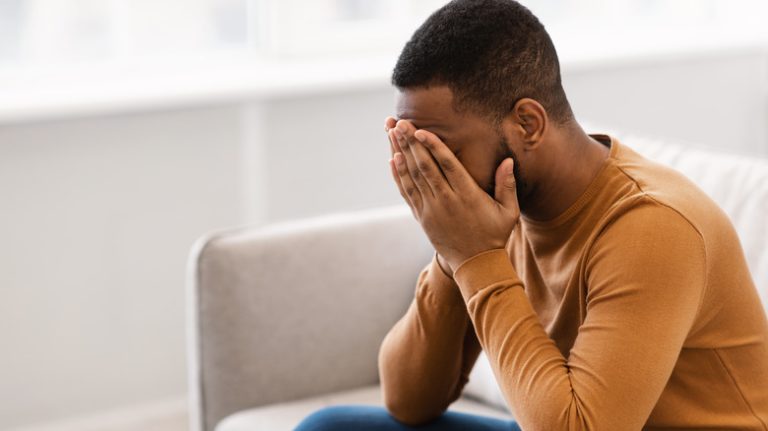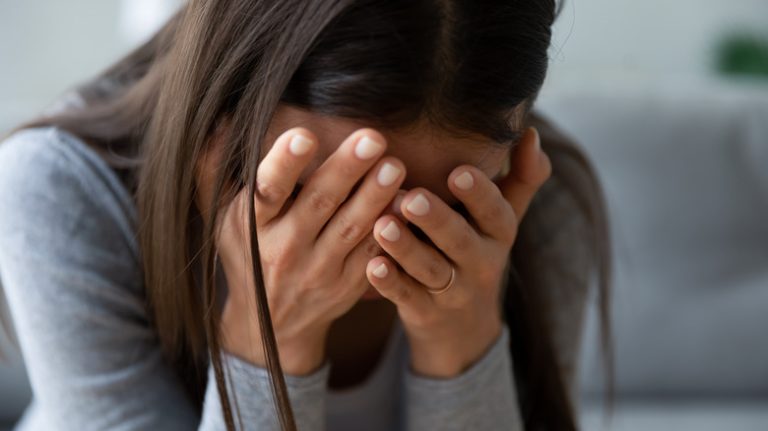According to the Centers for Disease Control and Prevention (CDC), about 20% of adults live with a mental illness during any given year. Despite this, data from the CDC showed that an average of only 10.1% of people received counseling or therapy in 2024, and that the older a person was, the less likely they were to receive that kind of treatment. While 13.2% of people between the ages of 18 and 44 received counseling or therapy, the same was true for only 9.2% of 45 to 64-year-old adults and just 4.7% of adults over the age of 64.
The reasons people are unable to commit to counseling or therapy can vary from lack of health insurance coverage to long waiting lists. It can be frustrating, to say the least. If you are in this sort of situation, here are some ways to help improve your mental health in the meantime.
Seek out complementary therapy

When you think of complementary therapy, it’s more about creative expression than cost. While these therapies certainly may be free of charge, the artistic art form is really the key. According to Verywell Health, a few complementary therapies include yoga, dance, art, music, meditation, and exercise — and their benefits are all backed by science.
A 2024 study in The Journal of Mental Health Training, Education and Practice showed that practicing yoga may be effective in reducing anxiety and depression. As for dance, a 2024 study published in Alternative and Complementary Therapies suggested that it may break an emotional barrier that talk therapy hasn’t been able to penetrate. Art therapy is particularly beneficial for reducing symptoms and boosting brain function, per a 2024 study in Psychiatry Research.
Music has been found to help people with mental illness relax, based on a 2024 review in Polski Merkuriusz Lekarski. Research published in 2024 in Alzheimer’s Research & Therapy supports the idea that meditation can reduce stress, anxiety, and depression. That same year, a study published in The Lancet Psychiatry showed that exercise is correlated with fewer mental health symptoms.
For free or low-cost options, Verywell Health recommends checking out libraries, churches, local parks, and community centers.
Download a mental health app
Apps that offer cognitive behavioral therapy (CBT), breathwork, and mindfulness can be helpful alternatives to counseling and therapy. Verywell Health says that many of them are free and recommends Calm, Headspace, Moodfit, MoodMission, Happify, and Shine.
Calm is a meditation app that also offers relaxing music, and bedtime stories to help you fall asleep. It also has other features to help with anxiety. Headspace is a popular pick, and the company also has a couple of series on Netflix about meditation and sleep. The Headspace app boasts mindfulness meditations, workouts for your mood, bedtime stories, and music. Moodfit is ideal for CBT as it’s designed to help you process your thoughts and keep track of your mood. Moodfit also includes a feature that helps you understand how your medications may be impacting your mood.
MoodMission offers evidence-based strategies for coping with anxiety and feeling low. Happify steps behind the veil to discover the science of happiness and is designed to help you stop negative thoughts, reduce stress and anxiety, build optimism and mindfulness, and gain confidence and self-esteem. Created by women of color, Shine is an inclusive self-care app with daily meditations, self-care courses, and virtual community workshops.
Take time to journal
brizmaker/Shutterstock
Verywell Health says that journaling can be a very therapeutic tool. Taking out time to write down how you feel is a healthy way to release emotions while also offering a visual log to look back over and analyze later. A 2024 study published in the Journal of Addictions Nursing researched this practice among mothers of children with substance abuse issues. The mothers journaled at least 3 times a week for 6 weeks. At the end of the study, there wasn’t any significant difference in terms of cortisol levels, but the mothers said that journaling helped improve their emotional well-being, stress management, perspective changes, focus, self-regulation, clarity, and gratitude.
In 2024, a study published in The Medicine Forum showed that journaling was an effective tool for stress relief, reflection, and perspective. Some medical residency programs have adapted the practice of journaling as a tool to help with the high rate of burnout that occurs in the medical industry.
Read self-help books
Alliance Images/Shutterstock
As someone great once said, knowledge is power. Coupling an understanding of what’s going on inside your mind, with advice from industry professionals, can help you feel less alone and position you to take action steps that can make a world of difference. A self-help book may be just what you need to move forward.
Verywell Health recommends getting recommendations for good self-help books from therapists, counselors, or other mental health professionals. It’s also a good idea to read reviews to see what other people thought about the book. Keep in mind that not every book is for everybody. A book that one person thinks is totally awesome may be boring and irrelevant to someone else. Reviews should be considered, but consider them lightly. Visit your library or check online to get a sneak peek of the book before you buy it. Some digital platforms will even let you download a chapter or two or read through the first few pages.
Find support through friends, family, and pets
WAYHOME studio/Shutterstock
A 2024 study in Current Opinion in Psychology found that your social identity and mental health are intertwined. Being part of a community can reduce both loneliness and depression. Finding your tribe and building those connections can give life new meaning and foster a sense of bigger purpose outside of yourself.
Another study published in 2024 in Stress & Health provided evidence that suggested having a pet is beneficial for improving symptoms of physiological stress, mental stress, and anxiety. If you don’t have (or can’t have) pets, Verywell Health says there are several ways you can create an emotional connection with animals. Volunteering at a local animal shelter or humane society are great ways to both create connections and help make a difference in your community. If fostering a pet is an option, doing so will allow you to benefit from loving animals without the long-term commitment. Pet sitting is also a good temporary option.


